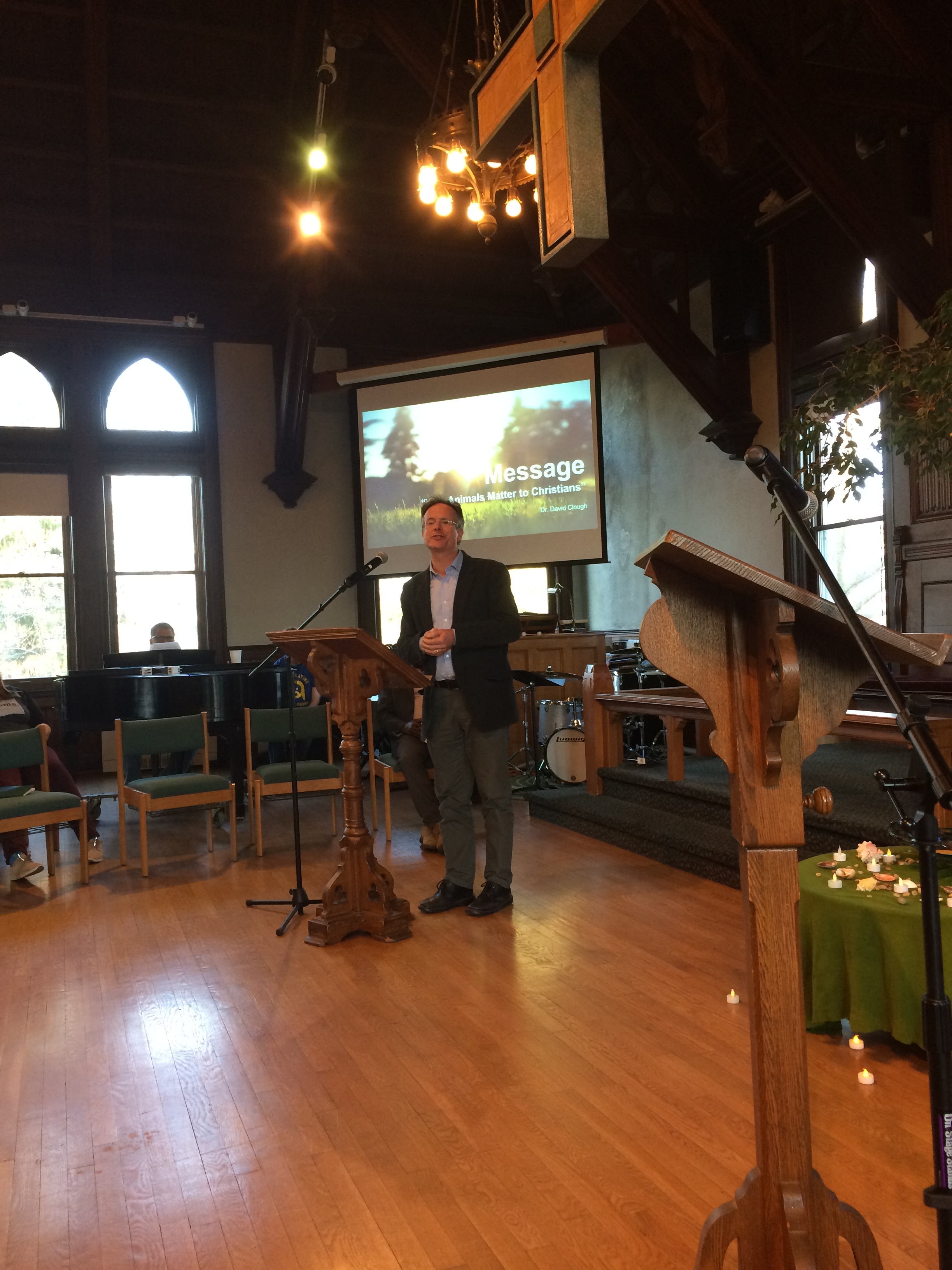Rambo you see, was a hateful, hostile, raging Jacob ram. If you happened to be the poor, helpless human assigned to feed the sheep for the day, Rambo was ready to draw first blood. He would rear up on his hind legs and come at you head-first, full speed ahead, with those twisted horns of his. Kathy and her team had rescued Rambo from an animal hoarder. There were seventeen animals locked in a very small, filthy stall. One was a dead cow. The other animals were adopted, but Rambo was too violent. Even a few very experienced sheepherders tried to take him in, but they gave up within a few days.
It was hard to know what to do with him. There was deep concern for the safety of farm workers and the rest of the sheep. Rambo was claustrophobic. He was too destructive to keep in a barn stall. He destroyed the fence, “smashed it to smithereens.” It is not untypical for Jacob rams to be highly emotional and extremely dangerous. But even after Kathy had Rambo neutered, nothing seemed to ease him. Alarmed that Rambo might get someone killed, Kathy was advised to “put him down immediately.” “For our own safety,” Kathy said, “I struggled with whether…it was indeed time to give up on Rambo.” In two years, Kathy had seen dozens of injured and traumatized animals be transformed. “This,” she said, “would be our first failure.”[2]
I think Kathy is an example of what Jesus called a good shepherd. She is a sheep-lover, someone who really loves her sheep. She challenges us to rethink what we mean by the word good. She helps us see what good actually looks like.
Framing Exercise: What is Good?
The relationship between Kathy and Rambo helps us better understand the teachings of Jesus we read this morning. It relates to what linguist and cognitive scientist George Lakoff calls framing.
In our text this morning (John 10:11-18), Jesus uses the word good. How we understand what good means depends on how it is framed. “Frames are mental structures that shape the way we [perceive and reason about things.] As a result, frames shape the goals we seek, the plans we make, the way we act, and what counts as a good or bad outcome of our actions.”[3]
By identifying himself as the “good shepherd,” Jesus is in the process of reframing. He takes the everyday experience of tending to sheep and makes a comparison between what is good and what is not good. In comparing the “hired hand” to the “good shepherd,” he is reframing our understanding of what constitutes as good.
Love Without Domination
The deep truths in passages like ours today can elude us because of the way we frame them. I grew up on a farm, and we had all kinds of animals. I’m not sure I would say I loved all of our animals, but like many farmers, I think my folks would say they did. Many farmers will say they love their animals, but what they mean is that they have an attachment to them. They feel a kind of warmth, an affection, a fondness for them. Caring for animals is certainly hard work. While they may call it love, I think most of those human-animal relationships are examples of domination. Rarely do they mean the kind of good love Jesus described in our passage for today.
Let’s begin with a first question: Why would someone get in the business of taking care of sheep? There are many who are widely considered shepherds, but they are not good in Jesus’ sense of the word. The frame here is one of domination. Rather than shepherds, these farmers would more properly called wool harvesters. They see the sheep as a possession. Their relationship is one defined by ownership, based on maximizing their benefit. Their relationship is one of domination. When the sheep are no longer profitable, the relationship ends—and most of the time, that means death for the sheep.
The good shepherd, on the other hand, is a sheep lover. They see the sheep, not as possessions but as partners. The frame here is one of nurture and mutual care. The sheep and the caretaker both exist with equal value and dignity. One does not exist for the sake of the other. The benefits that come from this kind of relationship are more spiritual than material. As Richard Rohr puts it, “Material gifts decrease when you give them away. Spiritual gifts, by contrast, increase the more you use them. Yes! You get more love by letting it flow through you… If you love, you will become more loving. If you practice patience, you will become more patient.”[4]
The Teachings of Jesus
Throughout Easter, I have asked us to consider the Resurrection as our divine initiation into life free from the powers of Death (with a capital D), the Domination System that governs our relationships, our institutions, and the way we look at the world. By using the term good shepherd in contrast hired hand, Jesus is offering to free us from the domination system by reframing our understanding of what is good.
In the context of the gospel story, we can assume that the hired hands represent the political and religious leaders of Jesus’ day. They see their relationship to the world under the frame of domination. When danger comes, they run. Protecting their authority, maintaining the status quo, or upholding their religious doctrines are more important than keeping their followers—the “sheep”—from danger. As participants in the Domination System, the sheep exist for the hired hand’s benefit. Everything they do is carried out for their own self-interest.
Jesus, on the other hand, represents the good shepherd. His relationship to the world operates under the frame of nurture and mutual care. Jesus identifies himself not as someone above the people, but as one of them. The shepherd identifies with the sheep as if the shepherd and the sheep share a common nature. For those that maintain a classical trinitarian theology—the Father, the Son and the Spirit are co-equally God—what Jesus says should blow your mind. Jesus says, “Just as the Father knows me and I know the Father,” this is the same as the relationship between the sheep and the good shepherd. When danger comes, Jesus offers his own life for the sake of those he loves. Because for the good shepherd, when the sheep suffer, the shepherd suffers.
Jesus is an illustration of what the good shepherd looks like. He is good because he loves the sheep as he loves his own life. He is good because he is willing to lay his life down for the sheep. He is good because his love is a good love. The shepherd sees the sheep on their own terms, as fellow creatures with their own needs to meet and hardships to bear. For the good shepherd, the sheep are here with us, not just for us. That is the only what that love can be good, when it is a love between two equals.
Kathy Stevens and Kaden Maguire
Kathy Stevens is an example of a good shepherd. She is a sheep-lover, someone who really loves her sheep. Like Jesus, watching her work challenges others to rethink what we mean by the word “good.” She helps me see what “good” actually looks like.
Starting out with nothing, Kathy created the Catskill Animal Sanctuary, a 148-acre refuge in New York's Hudson Valley for eleven species of farmed animals rescued from cruelty, neglect, and abandonment. They have rescued over 4,000 animals since 2001.
Kaden Maguire is an example of one of the Catskill staff, but he is anything but a mere hired hand. He knows every one of the sheep by name. He can tell you about Cleo and his son Ferguson, two sheep that suffer from a disease called Lintivirus. Cloe came to the farm as one member of a whole herd that were rescued from an animal cruelty case in 2016. They had been neglected. They were knee deep in waste, emaciated, and infested with parasites and disease. In the framework of domination, these sheep offer no material benefit whatsoever. They cost time, money, and resources to keep alive. And yet Kaden is out there, every day, watching sheep like Cloe, Lavern, Bertha, and Leena as they care for their children and teach the world how smart, kind, and beautiful they are. By spending time with Kaden, I got a glimpse of what Jesus must have meant by the good shepherd. Kaden loves his sheep, but it is a love that seeks to be free of domination. Kaden is a good shepherd because he teaches the world what good love looks like.
The Rest of Rambo’s Story
My wife Zion and I took our daughter Joey to stay at the Catskill Animal Sanctuary just a few weeks ago. I had just preached a sermon—you might remember it—where I talked about “Rambo Jesus.” Well, wouldn’t you know, we stayed in the Rambo room! One of the first stories that our guide, Drew, wanted to tell us was Rambo’s story.
After having him neutered, Rambo calmed down a little. But they were still afraid. They didn’t listen to the advice of those who said Rambo needed to be put down. Instead, they decided he just needed a little more time. They let him roam freely, and after a while his eyes began to change and he seemed to show signs that he trusted that he was never again going to be confined. He began to let go of his anger and feel at home at the Sanctuary.
On one cold bitter night, after turning out the lights and saying good night to everyone, Rambo came up to Kathy and began to bleat as if something was wrong. He led Kathy into a stall where she found two of the turkeys missing, Chuck and Cliff. Rambo then walked out with Kathy into the rain to find them outside their pen. Chuck was drenched with his head tucked in trying to stay warm. Poor Cliff was motionless in the driveway in a cold, shallow puddle.
Once everyone was back, dry and safe, Kathy began to reflect, “What just happened?” It was the first time Rambo had really used his voice, and he had figured out how to tell a human that something was wrong. Even more than that, he had just shown concern for two animals of a different species. Kathy says that that moment changed her life. As she writes in her book, “Nothing I [had read or studied in my many years of graduate education and experience] told me that my core beliefs were based on a false set of assumptions, on naïveté or ignorance. But in a darkened barn on a bitter early winter night, a sheep who finally believed he belonged with us did exactly that.”[5]
That’s what reframing looks like!
Not everything we call love is good love. Often it is little more than a sentimental form of domination. Good love, however, is based on relationships of nurturing and mutual care. Jesus says, “I am the good shepherd [because] I lay my life down for the sheep.” That is what the Resurrection teaches us, that God doesn’t give up on us when things get tough. God loves us with an infinitely patient, an unending, deeply nurturing love—the way Kaden loves Cloe, the way Kathy loved Rambo. This is the kind of love Jesus calls us to have for each other and the world around us.
As 1 John 3:16 tells us, “We know love by this, that Jesus laid down his life for us—and we ought to lay down our lives for one another.”
The Resurrection illustrates what good love looks like. What the world needs are people who give their lives to learn how to love well, who know what good love looks like. Because when love is good, it has the power to transform us and offer new life to the world!
[1] Kathy Stevens, Where the Blind Horse Sings (New York : Skyhorse Pub, 2009), p.49-50.
[2] Ibid., p. 51.
[3] George Lakoff, The All-New Don't Think of an Elephant!: Know Your Values and Frame the Debate (White River Junction, Vermont: Chelsea Green Publishing, 2014), p. xi-xii.
[4] Richard Rohr, “Love is Who You Are,” Thursday, August 11, 2016. https://cac.org/love-is-who-you-are-2016-08-11/ (Accessed online, April 21, 2018).
[5] Kathy Stevens, Where the Blind Horse Sings, p. 57.





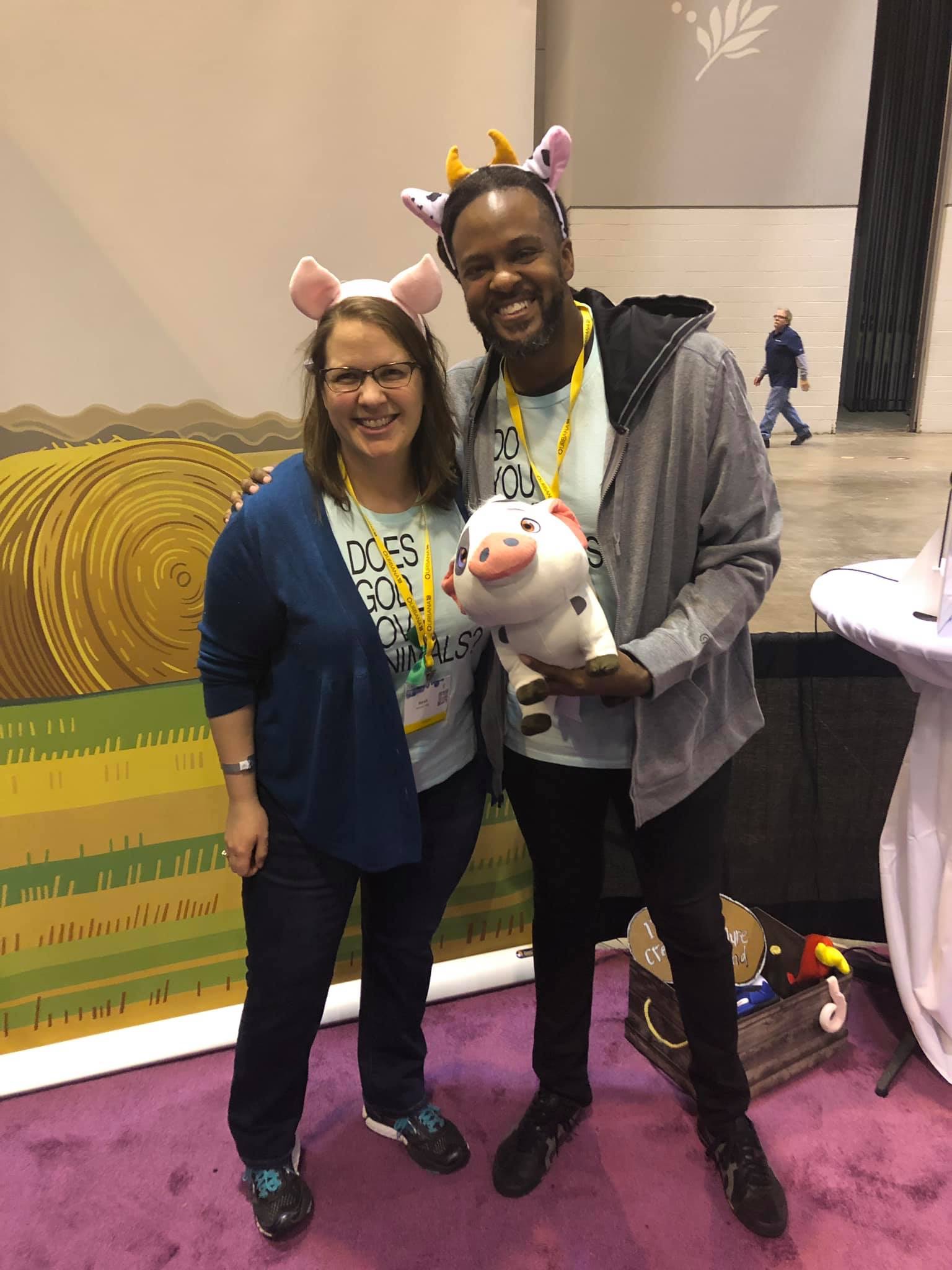
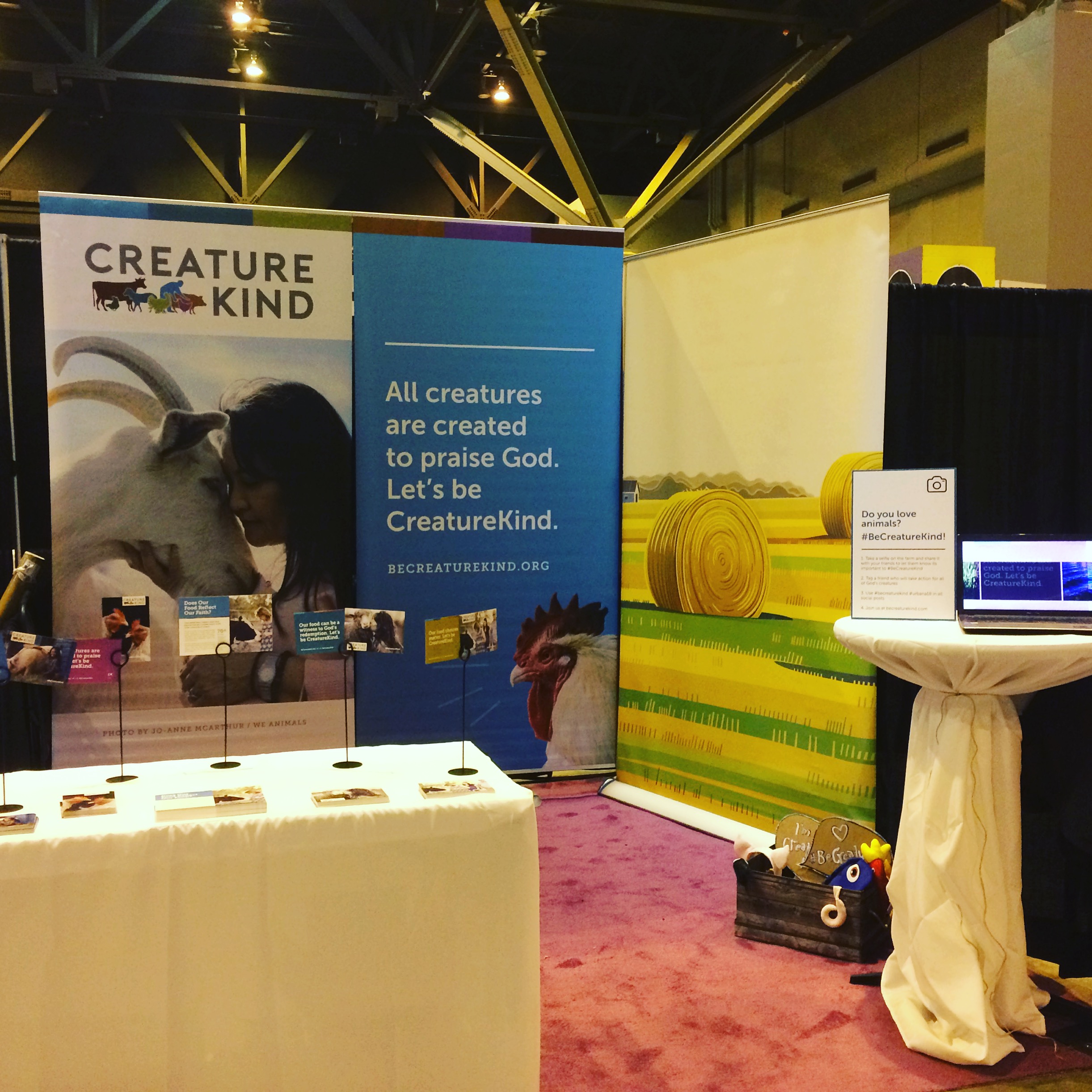
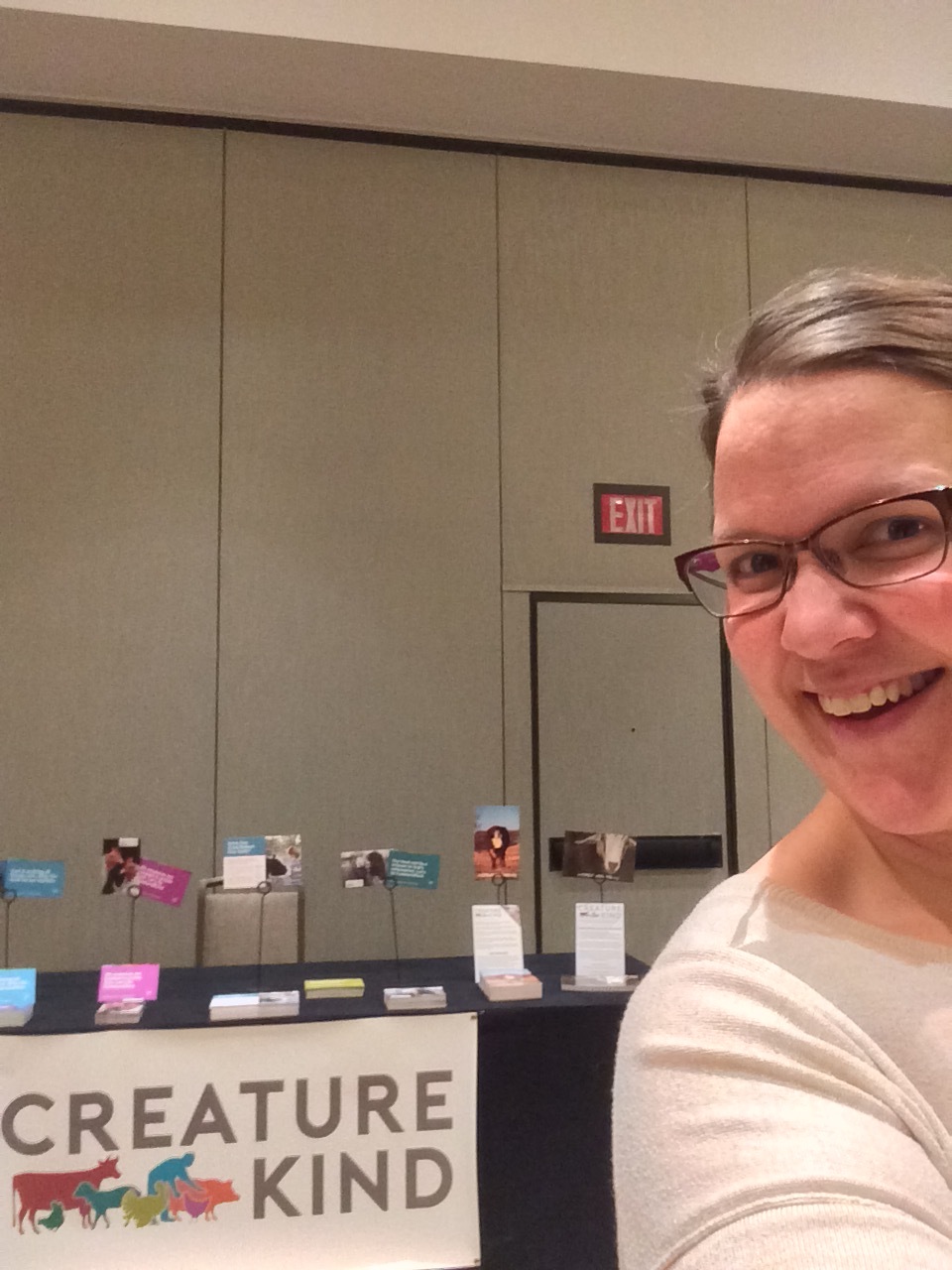
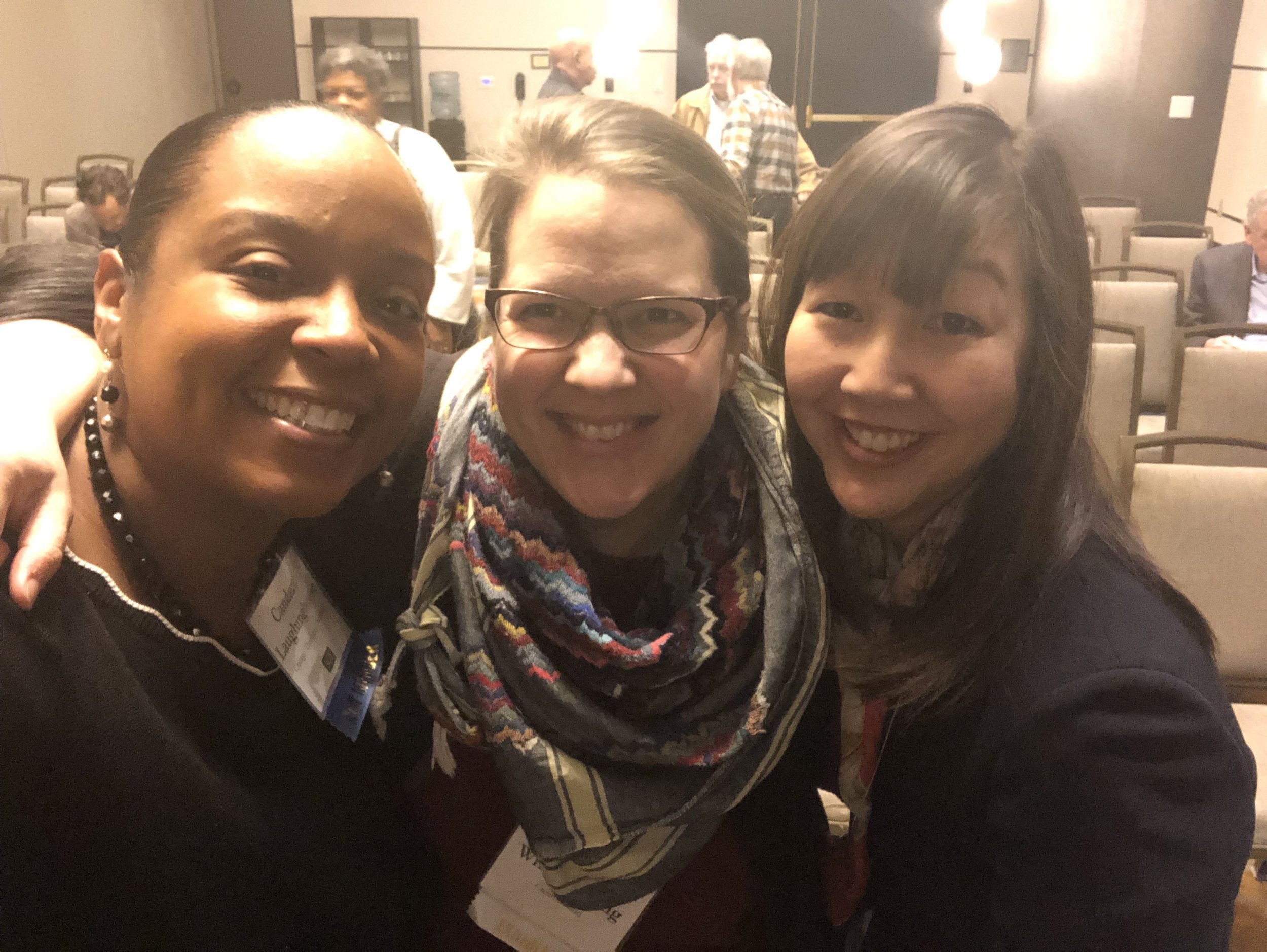
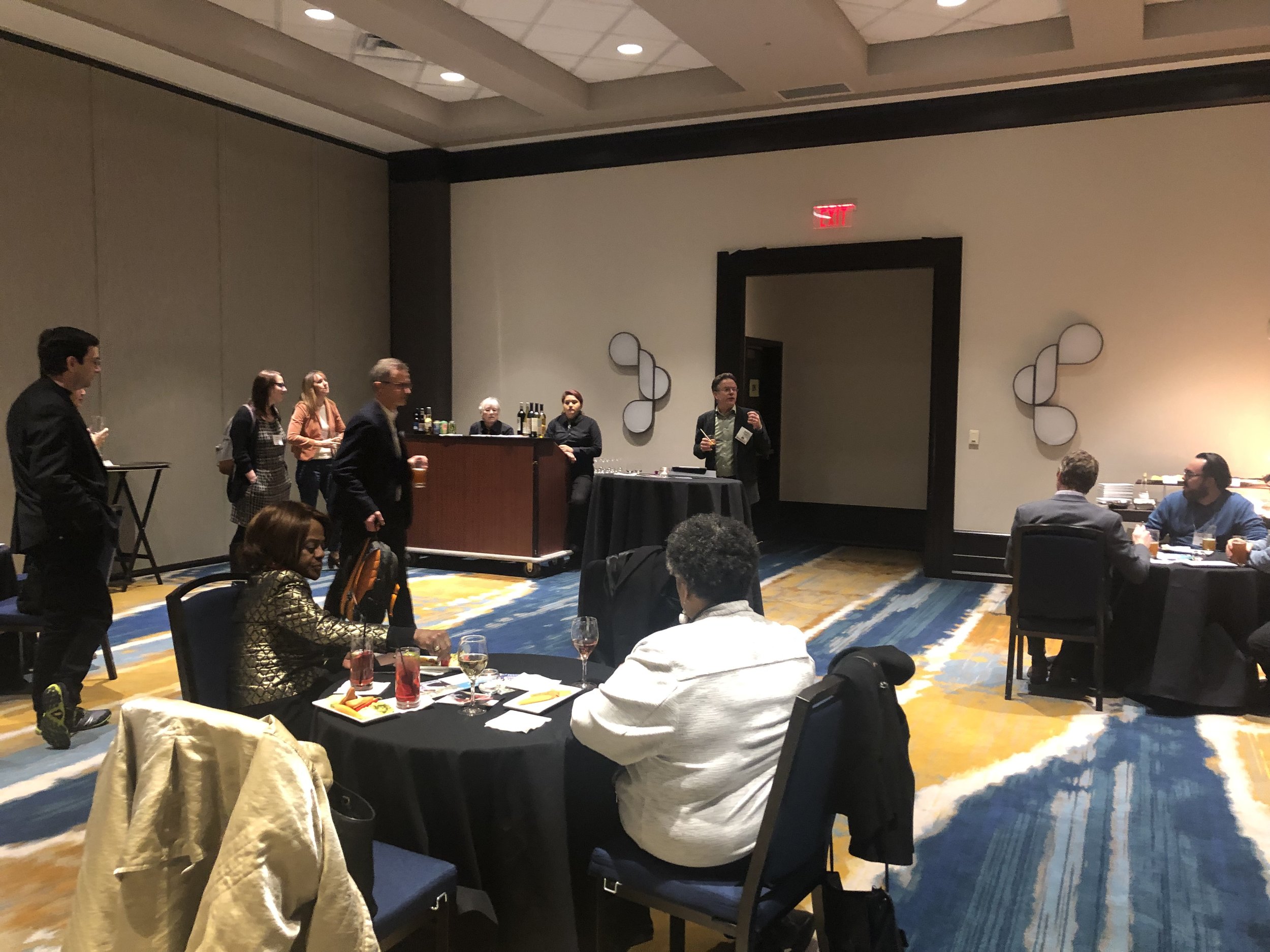
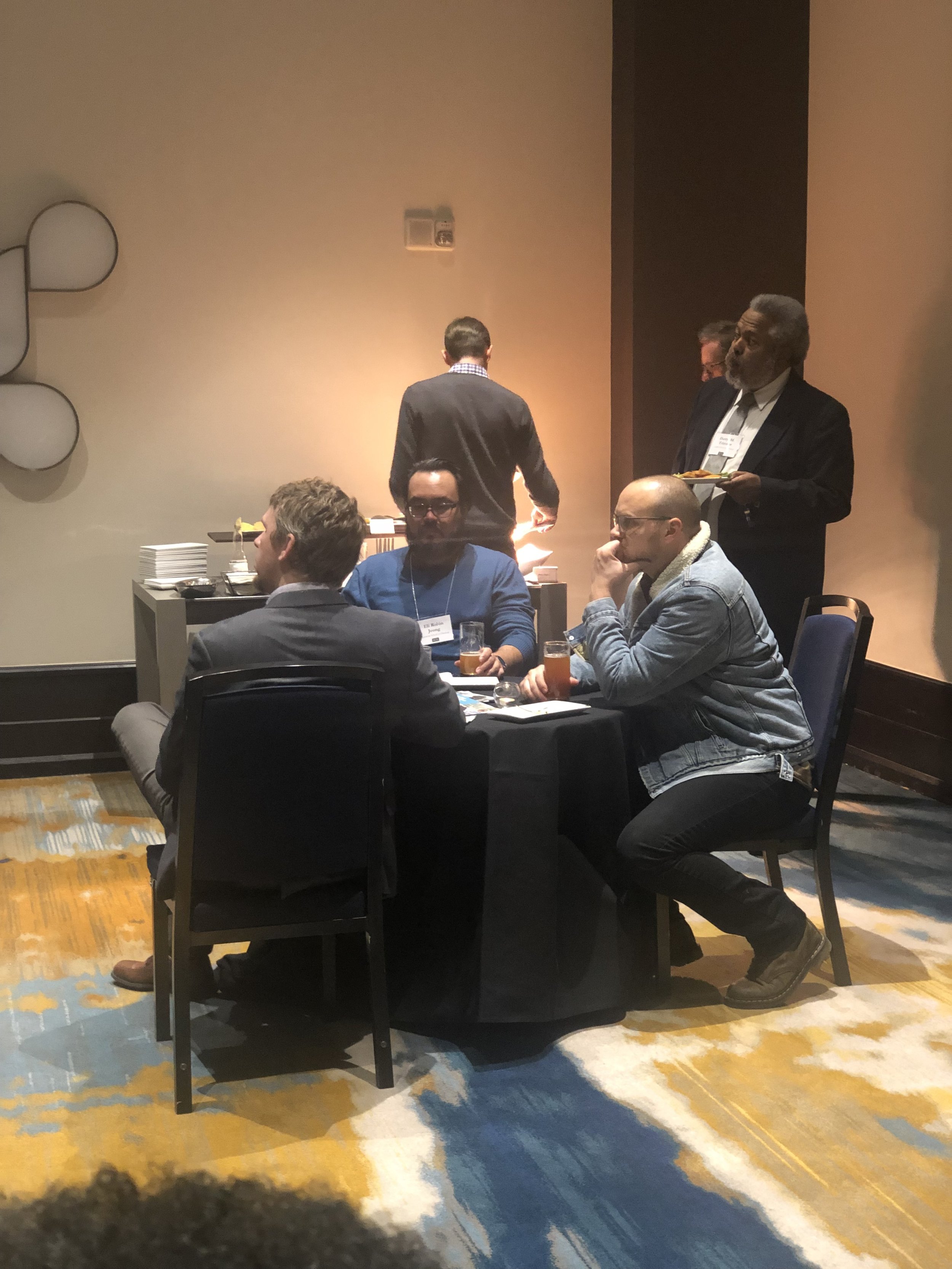
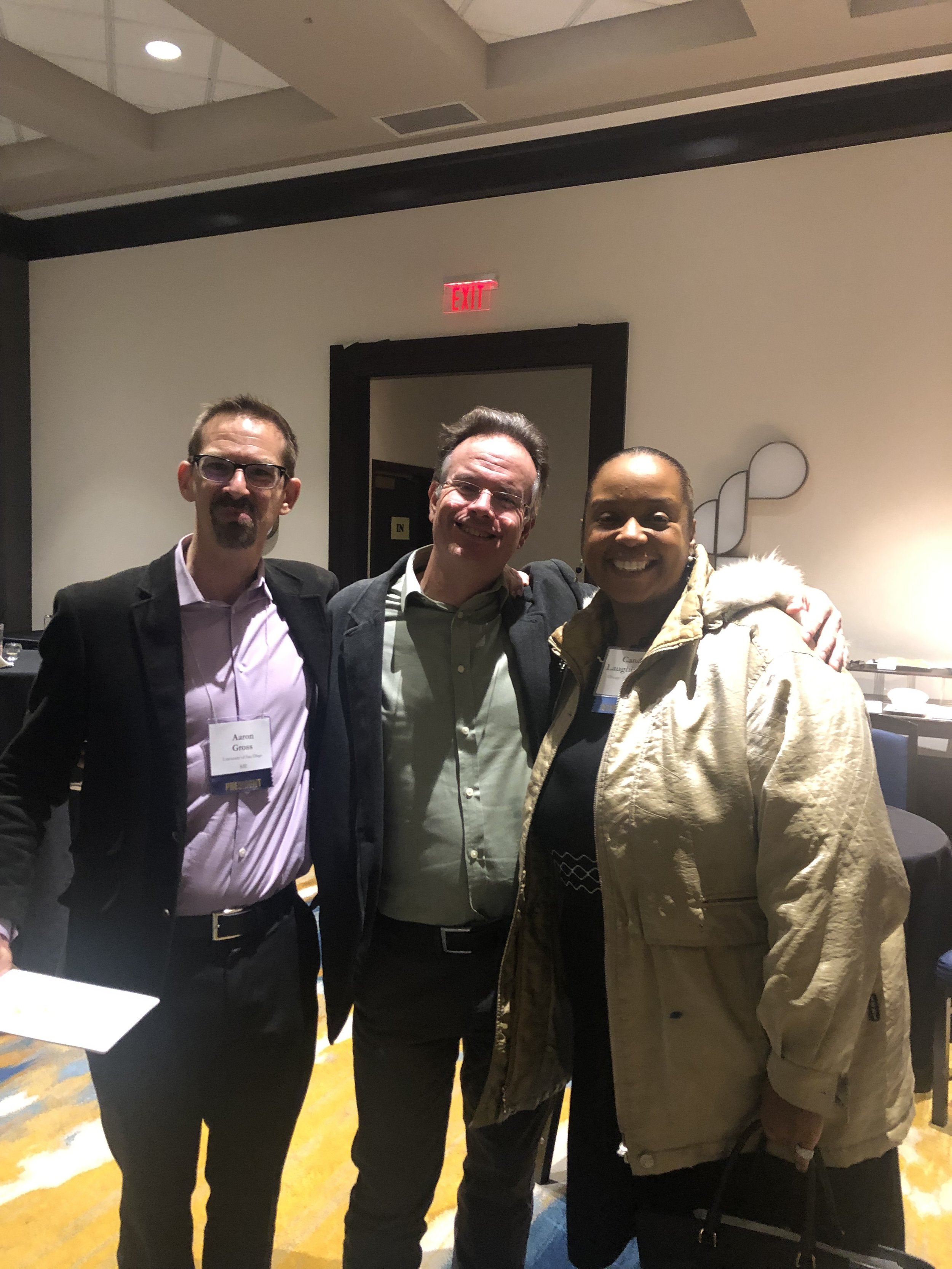



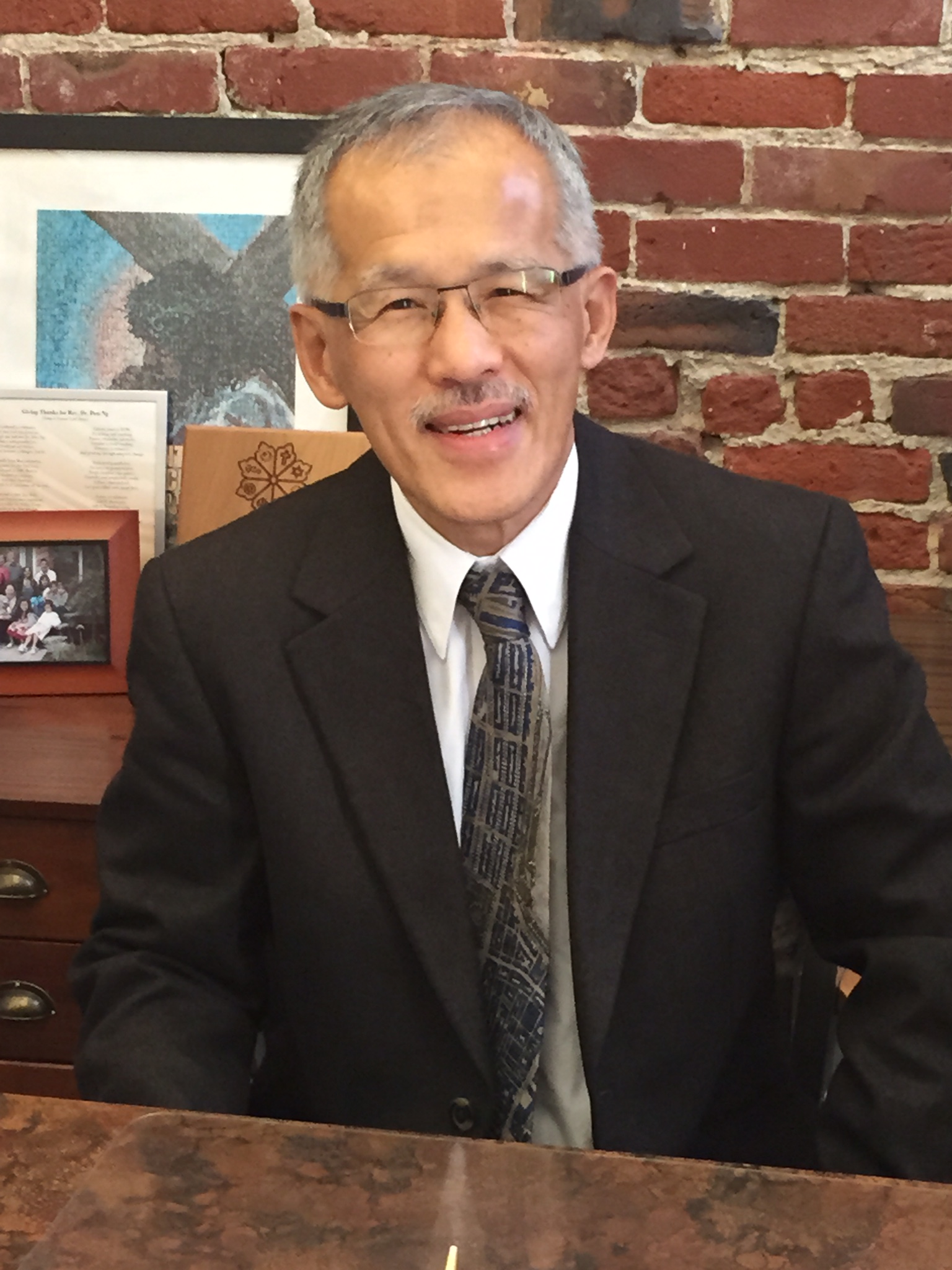



![IMAGE CREDIT: Die gelbe Kuh (The Yellow Cow), by Franz Marc (1911) [https://commons.wikimedia.org/wiki/File:Franz_Marc-The_Yellow_Cow-1911.jpg]](https://images.squarespace-cdn.com/content/v1/56fd4f1d45bf21c39ace2f22/1532353183422-21MJF69SOLGTXXF82LIM/1_gjnUJz79TumyFJD5UwkBUg.jpeg)
